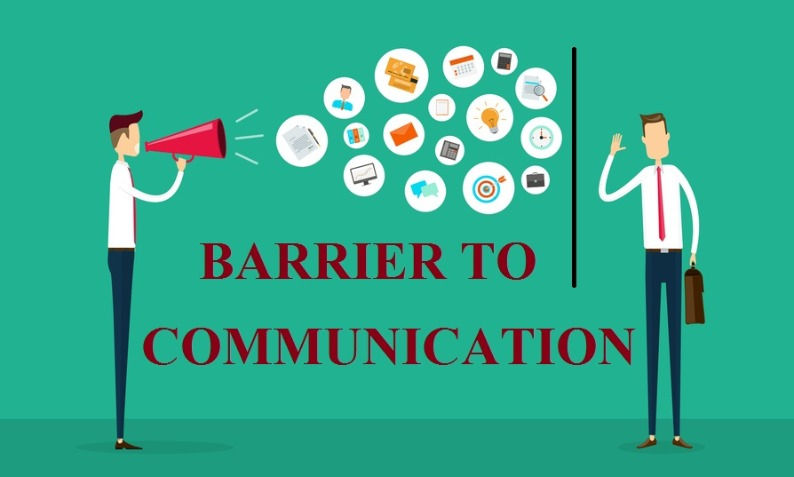Why Effective Communication is Important and How to Improve Yours
- Jena Beck
- Apr 26, 2024
- 6 min read
Welcome back, lovelies! Previously, we dove into the importance of boundaries and how setting them is vital for our mental health. Building on that foundation, this week we're diving into effective communication. As we navigate through this discussion, we'll uncover how the principles of communication not only complement the boundaries we've discussed, but also enhance our connections, making them more fulfilling and resilient. Whether you're aiming to boost teamwork efficiency or deepen the bond with a loved one, understanding the nuances of effective communication can be a game-changer. So, let’s embark on this journey together and explore how we can all become masters of meaningful interactions.

The Pillars of Effective Communication
Communication is the foundation for most human connection. In the landscape of human connections, three key elements are vital for ensuring the strength and clarity of our interactions: clarity, openness, and honesty. Each plays a critical role in fostering effective communication.
Clarity: This is the lighthouse guiding our conversations, ensuring that messages are not lost in translation. It’s about articulating our thoughts and intentions in a straightforward manner, choosing words that resonate with our audience. This principle is crucial, whether you’re delegating tasks at work or discussing life plans with your partner. It eliminates confusion and sets the stage for a smooth exchange of ideas.
Openness: Adopting openness in communication means creating an environment where feedback and diverse viewpoints are valued. It champions a genuine dialogue, ensuring that all voices are acknowledged and considered. This approach not only cultivates a culture of mutual respect and collaboration in professional settings, but also fosters deeper connections in personal relationships.
Honesty: At the core of trustful interactions lies honesty. It’s about being true to ourselves and others in our communications, even when facing difficult conversations. Honesty in the workplace can drive a team toward common objectives with a sense of integrity. In personal contexts, it fortifies relationships, promoting deeper mutual understanding.
Embracing these principles enables us to navigate the complex world of human interaction with greater ease and success. By prioritizing clarity, openness, and honesty, we enhance not only our personal and professional relationships, but also our overall quality of life.

Impact of Effective Communication in the Workplace
In the professional realm, effective communication goes beyond mere information exchange. It's about building understanding, nurturing an open culture, and aligning a team towards common goals with a shared sense of purpose. Effective communication is essential, not just for maintaining harmony and boosting productivity, but also for establishing clear boundaries, securing necessary resources, and enhancing career advancement opportunities.
Fosters Team Collaboration: By ensuring clarity in messaging, communication acts as the linchpin that holds a team together, facilitating seamless collaboration. It's the clarity in our conversations that minimizes misunderstandings, allowing fluid exchange of ideas and boosting productivity.
Aids in Conflict Resolution: At the heart of many workplace disagreements is a breakdown in communication. Open and honest discussions not only prevent misunderstandings, but also help resolve conflicts amicably, promoting a healthier and more cohesive work environment.
Boosts Morale and Job Satisfaction: When team members feel their voices are heard and valued, it significantly impacts their job satisfaction and morale. This sense of belonging and appreciation can lead to lower turnover rates and a more motivated workforce.
Setting Clear Boundaries: Open communication enables individuals to establish and maintain clear boundaries with their colleagues and supervisors. This is crucial for managing work-life balance, preventing burnout, and ensuring that responsibilities are fairly distributed. Clear communication about boundaries helps everyone understand their roles and limits, fostering a respectful and supportive work environment.
Securing Necessary Resources: Being able to articulate what you need to perform your job effectively is a fundamental aspect of workplace communication. Whether it’s requesting more team support, specific tools, or access to additional training, effective communication ensures that these needs are clearly expressed and understood, leading to more efficient and satisfying work output.
Facilitating Career Advancements: Communication plays a key role in career progression. Strong communication skills allow you to enhance your achievements, advocate for your own work, and express interest in opportunities for progress. An effective dialogue with supervisors can open doors to potential pay increases and promotions, as it allows employees to negotiate and highlight their contributions convincingly.
These facets of communication do more than just enhance our productivity and job satisfaction; they empower us to actively manage our professional development and well-being.

Communication and Strengthening Personal Relationships
In our personal lives, communication acts as the glue that holds relationships together. Whether it's with a partner, family, or friends, the way we communicate can deeply influence the strength and quality of these bonds.
Building Trust: Trust is the cornerstone of any strong relationship, and open, honest communication is key to building it. When we share our thoughts and feelings transparently, we create an atmosphere of trust. This encourages our loved ones to open up in return, deepening the connection.
Enhancing Intimacy: Effective communication allows us to express our love, concerns, and support more clearly. In romantic relationships, discussing hopes, dreams, and fears can significantly deepen intimacy, making the bond stronger and more resilient.
Resolving Conflicts: Conflict is a natural part of any relationship, but its resolution lies heavily in how we communicate. By approaching disagreements with calm, respectful, and clear communication, we can resolve issues constructively, without causing harm to the relationship.
Maintaining Connections: Life’s busy pace can sometimes pull us away from those we care about. Regular and meaningful communication helps maintain and strengthen these bonds, ensuring that physical distance does not turn into emotional distance.
So, it all boils down to this: great communication is the heartbeat of our relationships. It's not just about the words we exchange but about really connecting, really understanding each other. It's what turns everyday interactions into meaningful moments and deepens our bonds with those we care about.
Common Communication Barriers
When it comes to getting our point across, the road isn't always smooth. We often run into bumps along the way that can throw our messages off course. Here are a few common communication barriers that many of us encounter:
Cultural Differences: Our big, beautiful world is full of diverse cultures, which can sometimes lead to misunderstandings. What's polite in one culture might be rude in another, and this can complicate our conversations without us even realizing it.
Emotional Barriers: Ever tried having a serious talk when you’re really angry or super excited? It's tough, right? Strong emotions can cloud our thinking and make it hard to communicate clearly.
Physical Distractions: Ever been distracted by a noisy environment or a phone buzzing non-stop? Yep, these are the pesky little things that can pull our focus away from important conversations.
Language Barriers: Ever been baffled by jargon, slang, or a language you’re not fluent in? It’s like trying to solve a puzzle without all the pieces.
Assumptions and Biases: It’s easy to think we know what someone else means or is going to say, but jumping to conclusions can lead us astray.
Lack of Focus: Sometimes, we’re just not fully there, missing crucial bits of the conversation because our minds are elsewhere.
Getting past these barriers is key to keeping our lines of communication open and clear.

Strategies to Overcome Communication Barriers
So, how do we smooth over these bumps in the road? Here are some handy strategies:
Active Listening: This means really listening to what’s being said, not just waiting for your turn to speak. It’s about understanding the full message, asking questions, and engaging with the content.
Empathy: Putting yourself in someone else’s shoes can change the whole game. It helps us see where they’re coming from, especially when emotions are high or cultural differences are in play.
Clarity and Feedback: Keep it simple and straightforward. And don’t forget to check in to make sure everyone’s on the same page. This cuts through a lot of confusion and misunderstanding.
Managing Distractions: Find a quiet spot, put away the gadgets, and give the conversation your full attention. This shows respect for the speaker and the topic.
Patience and Open-mindedness: Keeping an open mind and staying patient can help us navigate through tough conversations and different viewpoints.
Regular Check-ins: Especially in ongoing situations, checking in can help clear up any miscommunications early and keep everyone aligned.
By adopting these approaches, we can tackle those communication barriers head-on, making sure our messages not only land, but stick.
A Final Note
Remember that communication is more than just trading words—it's about building bridges. Whether you’re in the boardroom, catching up with a friend, or overcoming a disagreement with your partner, how we share our thoughts and listen to others makes all the difference. By embracing the strategies we’ve discussed and keeping an eye out for those common barriers, we’re not just talking—we’re connecting.
So, take these insights and put them into practice. Listen actively, speak clearly, and check in often. Make each conversation an opportunity to strengthen your bonds, whether they're with your colleagues, your friends, or your loved ones. And remember, every great relationship, whether personal or professional, starts with a simple "hello."
Until Next Time, Jena Your certified mental health advocate, helping you be your best self




Comments